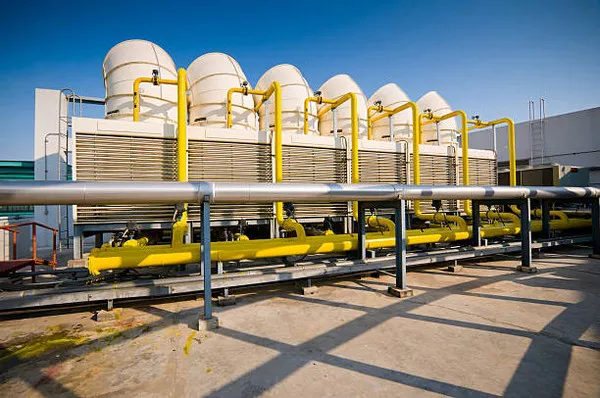What exactly is a compressor, and why is it so critical in the functioning of refrigerators? A refrigerator compressor is a key component responsible for circulating refrigerant through the cooling system, generating the cooling effect necessary for preserving food and maintaining optimal temperatures. Compressors play a pivotal role in modern refrigeration technology, facilitating energy-efficient cooling processes essential for everyday life and various industries.
How Does a Refrigerator Compressor Work?
At the core of a refrigerator’s cooling system is the compressor. This device operates on the principle of compressing and then expanding refrigerant gas to remove heat from inside the refrigerator, thus keeping its contents cool. The compressor’s primary function is to increase the pressure and temperature of the refrigerant gas, transforming it into a high-pressure, high-temperature vapor. This vapor then travels through the condenser coils located on the back or bottom of the refrigerator, where it releases heat to the surrounding environment and condenses into a liquid state. The condensed liquid refrigerant then flows through an expansion valve or capillary tube, where it undergoes a rapid reduction in pressure, turning into a low-pressure, low-temperature liquid. This chilled liquid absorbs heat from inside the refrigerator, cooling its contents, before returning to the compressor to restart the cycle.
Refrigerator compressors are typically driven by electric motors, which power the mechanical compression process. The compressor’s motor is designed to create the necessary pressure gradient to move the refrigerant throughout the cooling system efficiently. This movement of refrigerant is vital for maintaining consistent temperatures inside the refrigerator, ensuring food remains fresh and safe for consumption. Compressor efficiency is crucial not only for effective cooling performance but also for minimizing energy consumption and operating costs.
Types of Refrigerator Compressors: Which One Is Right for Your Appliance?
There are several types of compressors used in refrigerators, each offering distinct advantages in terms of efficiency, size, and noise levels. The most common types include reciprocating compressors, rotary compressors, and linear compressors. Reciprocating compressors, characterized by their piston-driven motion, are widely used in domestic refrigerators due to their simplicity and affordability. These compressors operate by drawing refrigerant vapor into a cylinder and then compressing it with a piston to increase its pressure.
In contrast, rotary compressors utilize a rotating mechanism to compress refrigerant, making them more compact and quieter than reciprocating compressors. They are often found in smaller refrigeration units or portable fridges. Another innovative design is the linear compressor, which uses an electromagnet to drive a piston back and forth, eliminating the need for rotary motion. Linear compressors are known for their energy efficiency and quieter operation, making them popular in high-end refrigerators and commercial cooling applications.
Choosing the right type of compressor depends on various factors, including cooling capacity, energy efficiency requirements, and space constraints. For instance, households seeking a balance between cost and performance might opt for refrigerators equipped with reciprocating compressors. In contrast, those prioritizing energy efficiency and noise reduction might prefer models featuring rotary or linear compressors.
The Importance of Compressor Efficiency and Energy Consumption
Why does compressor efficiency matter, and how does it impact the overall energy consumption of a refrigerator? Compressor efficiency directly influences the cooling performance and energy efficiency of a refrigerator. An efficient compressor can maintain stable temperatures inside the refrigerator while consuming less electricity, resulting in lower energy bills and reduced environmental impact.
The energy efficiency of a compressor is often measured by its Coefficient of Performance (COP), which represents the ratio of heat removed (cooling effect) to the electrical energy input. A higher COP value indicates better efficiency, meaning the compressor can produce more cooling per unit of energy consumed. Manufacturers continually strive to improve compressor designs and technologies to enhance efficiency and meet stringent energy efficiency standards.
Refrigerators with energy-efficient compressors not only reduce electricity consumption but also contribute to overall sustainability efforts by lowering greenhouse gas emissions associated with electricity generation. Consumers looking to purchase a new refrigerator should consider models with high Energy Star ratings, indicating superior energy efficiency achieved through advanced compressor technology and insulation methods.
Maintenance and Troubleshooting: Keeping Your Compressor Running Smoothly
What steps can consumers take to ensure their refrigerator compressor operates smoothly and efficiently? Regular maintenance and prompt troubleshooting are essential for maximizing the lifespan and performance of a refrigerator compressor. One crucial aspect of maintenance is keeping the condenser coils clean and free from dust and debris. Dirty coils can impair heat dissipation, causing the compressor to work harder and consume more energy.
Additionally, maintaining proper ventilation around the refrigerator ensures adequate airflow to the condenser coils, preventing overheating and prolonging compressor life. Monitoring the internal temperature of the refrigerator with a thermometer helps detect cooling issues early, allowing for timely repairs before compressor damage occurs.
When troubleshooting compressor problems, it’s crucial to consult a professional technician to diagnose and address issues effectively. Symptoms of compressor malfunction, such as unusually loud noises, inconsistent cooling, or excessive energy consumption, should not be ignored and require immediate attention. In some cases, compressor replacement may be necessary to restore optimal cooling performance and efficiency.
SEE ALSO How Much Does A New Air Conditioner Compressor Cost
In conclusion, the refrigerator compressor is a fundamental component that drives the cooling process, ensuring food preservation and energy efficiency in modern refrigeration systems. Understanding how compressors work and their impact on refrigerator performance can empower consumers to make informed decisions when purchasing and maintaining refrigeration appliances. By prioritizing compressor efficiency, energy conservation, and regular maintenance, consumers can optimize the longevity and efficiency of their refrigerators while minimizing environmental impact.

